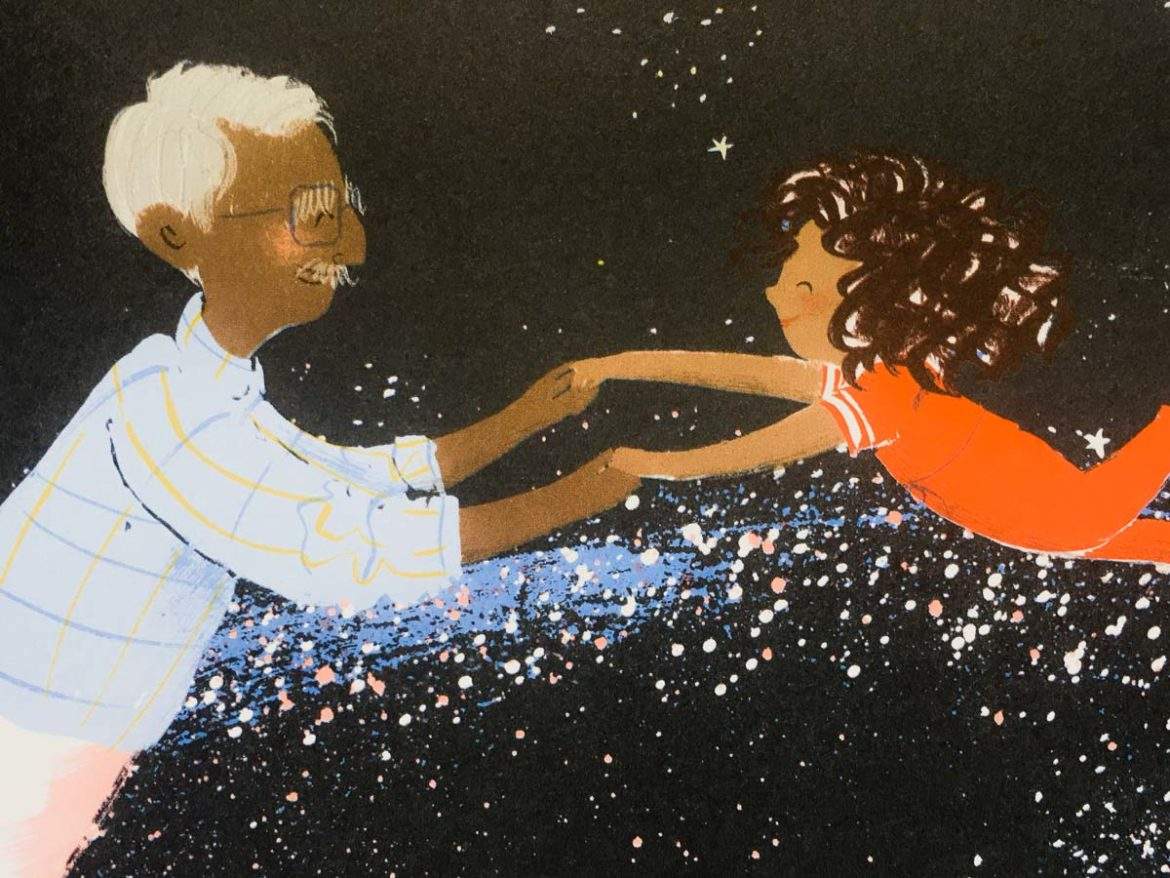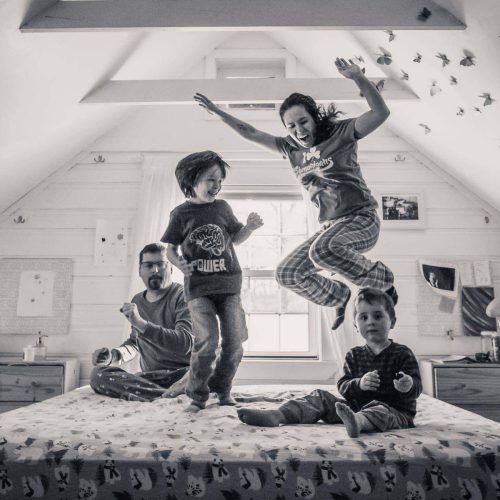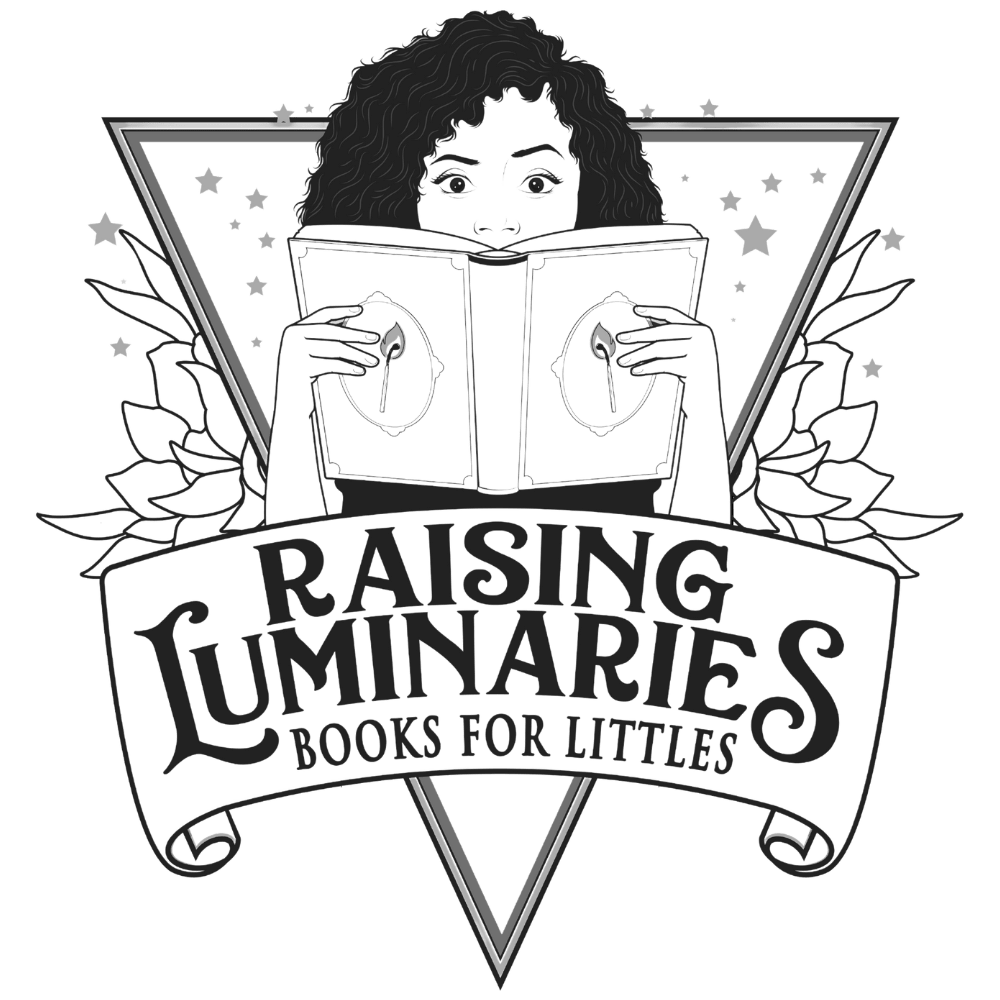[Image: Grandpa’s stories by Coehlo & Colpoys, featuring a South Asian American Grandfather and grandaughter holding hands and swinging in front of a galaxy of stars.]
This season, we’re exploring anti-elder ageism, and how it reinforces and empowers all the -isms of the kyriarchy.
Anti-elder ageism isn’t really a hot topic in the news right now (or ever?). There is no institutionalized violence against grannies in the media. No photos of old folks in cages for crossing the border, no calls to action to support elders displaced by climate change.
The anti-elder ageism head of the kyriarchy hydra appears to be an issue we can save for the back-burner – but is this true?
With all the urgent topics networks are screaming at us to tackle, bias against elders is far down on the list.
I mean we’re here to raise the next generation of kind and brilliant leaders. Our kids are growing into their power and it’ll be at least 50 years before anti-elder ageism affects them or their peers.
And okay. Let’s get a little petty. There sure are a heck of a lot of people of retirement age in positions of power – from the judicial and legislative system to the trustees of philanthropy foundations and executive board rooms.
Why should help out the generations who left us in this mess of continental wildfires, rising sea levels, an expanding wealth gap, and impending war? Those older generations had their chance to make a change decades ago.
If they wanted things to be different, they could have worked on anti-elder ageism years ago. (And they’re going to die soon anyway, amirite?)
And if they do – why should that be on us whippersnappers?
Do elders even need accomplices in the fight against age discrimination?
As a young person keeping two even younger people alive, I’m busy. I haven’t been doing much to secure the rights and humane treatment of elders. I’ll deal with that when it’s an urgent problem, like when I’m forced to navigate a biased system for my aging mom. Or when I’m…older?
In 40 years, my voice won’t hold the weight in society that it does in my youth. But like climate change, that’s something I guess we can all deal with later. Right?
Stereotypes and bias used against elderly people aren’t killing them, right? At least not the urgent and visible way that we see BIPOC, LGBTQi2S+, religious minorities, and otherwise marginalized folks violently targeted and silenced. We can’t go a day without hearing about violence. It’s been months since I read an article about systemic discrimination against the elderly.
Except… okay wait let’s think this out for a minute. This stuff is happening. Why aren’t we seeing it in the media? Why isn’t this outrageous?
This season, we’re revealing our ageist bias and assumptions
Elders are invisible in all media outside the roles of caretaker, family burden, or taking up space and waiting to die. When elders speak up about discrimination, bias, and the impact of it, we brush them off because it seems like they don’t have it too bad.
So far as I can tell, no one really…cares about what’s going on with the older chunk of humanity. This is a problem.
If elders hold so much power, why do we dismiss their calls for justice?
Something feels off.
It feels like…justifying the wealth gap with stories of the noble poor / evil welfare queen. Ableds finding entertainment in disabled stories of suffering or inspiration porn.
Something about this feels like….the false dichotomies we use to silence marginalized people when they speak up about injustice.
We go deeper into how these reductive binaries harm marginalized people in the Victims & Saviors post, if that’s a thing you want to know about.
We toss around language like ‘batty old coot’ because elders are supposed to be harmless and irrelevant.
When using around ableist and sanist language like ’stupid’ and ‘lunatic,’ we make the casual assumption that the people these words stigmatize don’t really matter. It’s okay to use denigrating language about them because these are the folks who have no power to harm us. (It’s not though).
There is in fact, institutionalized discrimination happening against elderly people. We’re just not talking about it. We’re not outraged about it. It’s someone else’s problem.
Our bias is harmful, it’s oppressive, and it’s killing them. This violence disproportionately affects multiply-marginalized elders.
So if we care about the rights of say, disabled women of color – are we advocating for the rights of elderly disabled of women of color? Or just the young ones because we perceive their lives as more valuable due to our assumptions on age?
The ways vulnerable elders are targeted isn’t just a problem for elders. If being old somehow makes employment gender bias or medical discrimination acceptable, where should we draw the line?
When we devalue a person based on their age, this excuses all violence and stigma used against people with a marginalized identity – of all ages.
Why we need to understand anti-elder ageism if we want to fight for rights of young people.
We need to dismantle ageism not despite our focus on the youngest generation, but for our youngest generation.
Anti-elder ageism is a keystone head of the kyriarchy hydra. By unpacking our unconscious bias, we’ll gain a deeper understanding of the way we are complicit in oppression.
This includes internalized bias. So please join us, great-grandparents and seasoned educators.
We urgently need the guidance of our elders
When we disregard the voices and lived experience of our elders, we throw out vital knowledge we need to achieve a progressive future.
As we approach what should have been the 91st birthday of the Dr. Rev. Martin Luther King, Jr. we need to acknowledge more than milestone names and dates in the civil rights movement. We need to understand the era and environment in which they fought.
Those civil rights leaders who fought alongside King are the same elders we dismiss out of ageist bigotry today.
Non-elderly adults and our children are powerful agents of change. We didn’t make this power – it was handed to us. We had the fortune to pick this power ripe, grown from the seeds ancestors elders planted for us.
Acknowledging the privileges that our elders gave us doesn’t negate our power. This understanding amplifies our abilities to pick up the progress they’ve created and amplify it.
Elders laid this path for us before we even knew this garden needs tending. They have knowledge on how to cultivate change that has been nurtured over decades and centuries. Understanding this makes it easier for us to replicate their successes and avoid repeating their mistakes.
It’d be a damn shame to let that knowledge disappear because we’re too arrogant to listen.
Iterative knowledge builds upon the work of our ancestors. Otherwise, we’d be re-starting civilization from scratch every 60 years. Our elders have been where we are. They have fought these same fights. We need their stories and their insight to bend that long arm of the moral universe toward justice.
I dunno about you, but I got better things to do with my time than reinvent basic strategies for organizing a movement.
In our youthful impatience, we could all afford to be wiser, more deliberate – and way more humble
We have work to do – myself included. I was called on to question my use of ageist stereotypes back in 2017 by Gail Susan Gordon, a reader who had the courage and insight to question my use of the group ‘Old White Ladies’ that perpetuated stereotypes and bias against elderly women. I’m eternally grateful that Gordon took the time to poke me on that.
This season’s dive into anti-elder ageism isn’t a diversion or a pit-stop. It’s a milestone in our struggle to understand how the kyriarchy operates so we can dismantle it safely. So we can build a better world for our children.
This next generation will, hopefully, see us not as doddering old fools who are past our prime, but powerful allies in the progress of justice and the stewardship of our planet for future generations.
So over the last year, I’ve approached my research on anti-elder bias in children’s literature and beyond. I’ve only scratched the surface. So now we need to work together in what we can uncover together.
ANTI-AGEIST KID’S BOOKS
Below, you’ll find my favorite empowering, destigmatizing, stereotype-smashing, complex elderly characters and stories.
Together, we’ll use these stories as tools to teach your kids about elder discrimination, why kids should care about it – and what they can do to dismantle it.
To get a head start, go ahead and request a few of these from your local library. We’ll discuss how to use them as this series progresses. As usual, some of these stories are great for dismantling some biases, but problematic in other ways. Once we know better – we can all do better.
Best Kids Books Destigmatizing Aging
Next up – we’ll talk about the importance of following and listening to #OwnVoices elder activists (and why they’re so rare).
I’m excited that you’re joining me in this experiment!
- Why Young Activists Depend on the Fight For Elder Rights
- Believing #OwnVoices Elders
- Problematic Stories of Youth Saviorism Stigmatizing Older Adults
- Older Lives Are Worth Living: Fighting Ageism & Deathmisia In Children’s Books
- Anti-ageism kids books featuring intergenerational friendships
- Joy: Analyzing anti-elder saviorism in kidlit (12 minute video)




